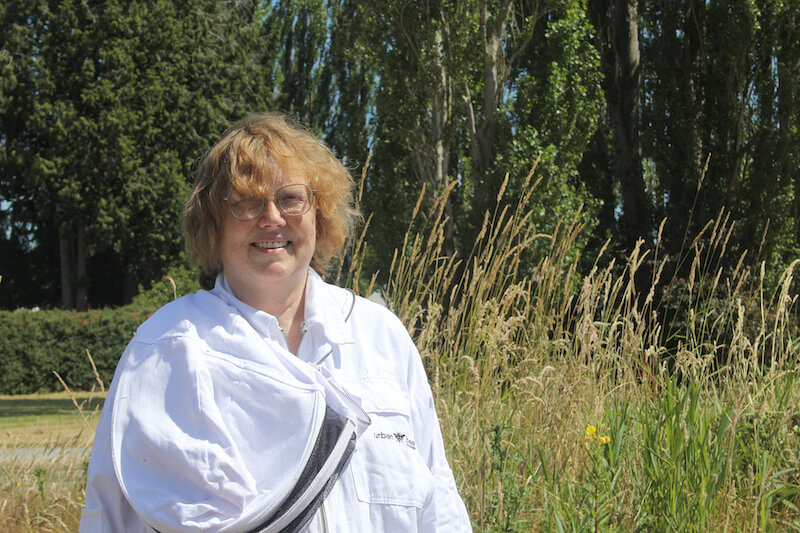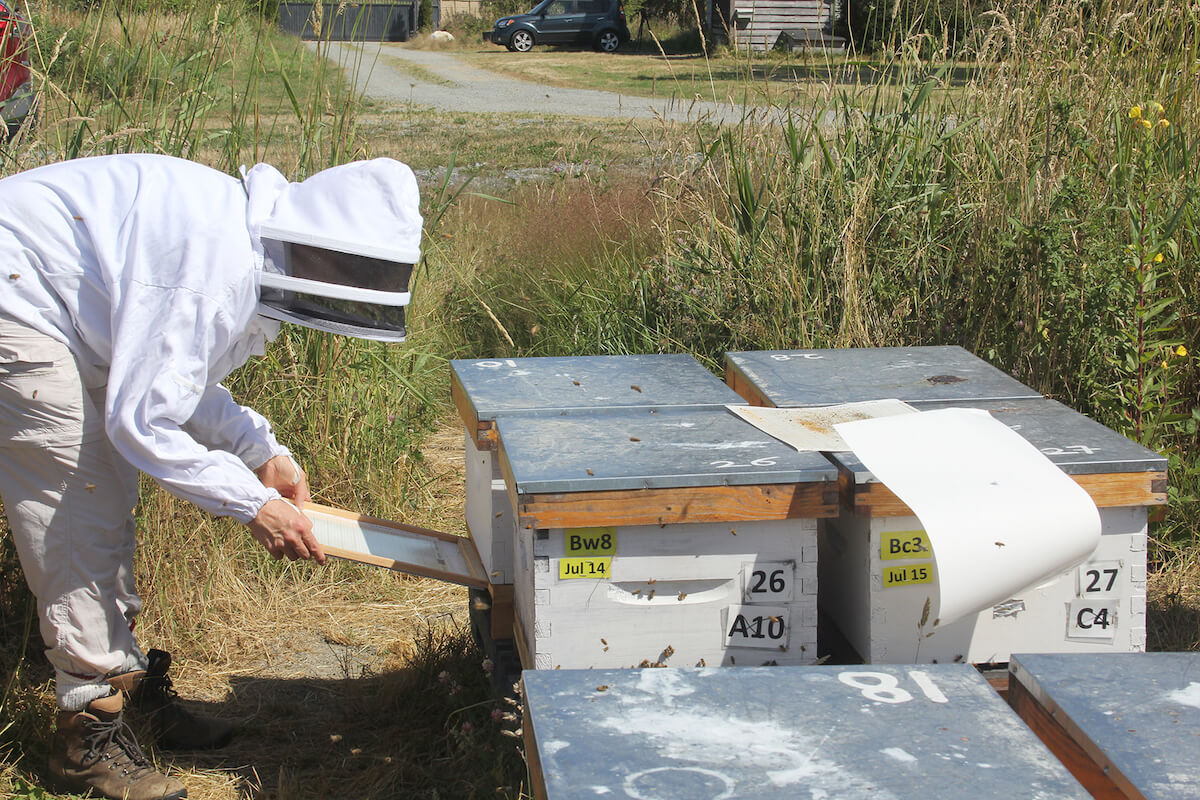 by Véto-pharma
by Véto-pharma Varroa mites are one of the major threats leading to bee colony losses at a global level.
Véto-pharma will support Simon Fraser University (SFU) in the development and registration of a new miticide based on the innovative compound recently discovered and patented by SFU.
Honey bees are sentinels of our environment and are responsible for the production of around 30% of the world’s consumable food. Varroa mites, a deadly parasite that affects honey bees, is the main challenge that beekeepers face to protect their beehives today. Health and survival of honey bees are major issues that have implications for local and global wellbeing.
Understanding this challenge, the announcement that SFU and Véto-pharma have reached an exclusive collaboration agreement to evaluate the effectiveness of a new asset in controlling varroosis is exciting news! The cooperation between the parties is a significant step forward, and both are optimistic about the potential of the new asset in protecting honeybees and securing their future.
Understanding this challenge, the announcement that SFU and Véto-pharma have reached an exclusive collaboration agreement to evaluate the effectiveness of a new asset in controlling varroosis is exciting news! The cooperation between the parties is a significant step forward, and both are optimistic about the potential of the new asset in protecting honeybees and securing their future.
In the beekeeping industry, few companies invest in innovation. However, Véto-pharma, a French veterinary pharmaceutical laboratory with almost 3 decades of experience and knowledge in honey bee health, is dedicated to offering innovative solutions by investing annually 8-10% of their revenues. Véto-pharma, a world leader in honeybee health, works tirelessly to ensure the future of the beekeeping industry.
In addition to product development, they also actively engage in research and education to raise awareness about the importance of bee health and the threats they face. They collaborate with beekeepers, researchers, and industry experts to share knowledge and develop best practices for bee management. By constantly striving to improve bee health, they aim to safeguard their vital role in pollination and food production.
The limited availability of effective options for varroa control poses a challenge for beekeepers to adapt their strategies for varroa control. Therefore, finding a chemical compound that can effectively eliminate varroa mites without harming bees is a difficult task. Nevertheless, this new chemical compound under development could give beekeepers an edge in the fight against varroa mites.
Véto-pharma is excited to support this promising project and to collaborate with SFU to bring innovation to beekeepers around the world. “We are confident that our unique capabilities will be valuable to turn this discovery into a valuable solution to allow beekeepers to fight against varroosis in an efficient manner”.
SFU is equally excited for this collaboration and translate leading edge research from the chemistry lab of Professor Erika Plettner to help protect bee-colonies globally.

The discovery of the new acaricide began in the early 2000s when the Plettner group began looking for compounds that could interfere with chemoreception in insects. Insects use chemical signals to communicate with each other, detect their hosts, signal danger, to name a few. Chemoreception is the process by which these signals are detected, an essential process for survival of insects.
The team discovered that the acaricide could paralyze and “confuse” the mite Varroa destructor. After initial laboratory assays, multiple small-scale field trials were conducted in Canada to demonstrate that the compound could be used to significantly decrease the number of mites in a colony. Treatments currently used are few, and they each have their challenges or limitations. To manage mites in bees more effectively, more options for treatment are required, to implement integrated pest management (IPM) schemes.

SFU personnel are committed to conduct further research to ensure the full potential of this technology is realized. SFU’s Technology Licensing Office (TLO) has supported the commercialization of this technology by protecting the IP and brokering the collaboration with Véto-pharma. The future of the technology, after further industry testing, could result is one of the most useful tools to ensure healthy bee colonies worldwide.
 by Véto-pharma
by Véto-pharma  by Véto-pharma
by Véto-pharma VTP-123-US-N01-11/23
Join the Véto-pharma community and receive our quarterly newsletter as well as our occasional beekeeping news. You can unsubscribe at any time if our content does not suit you, and your data will never be transferred to a third party!
© 2019-2025, Véto-pharma. All rights reserved